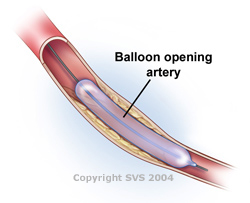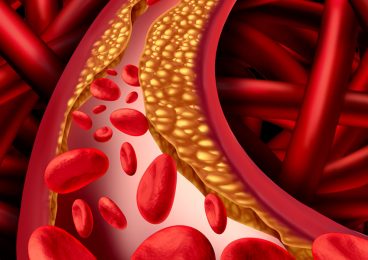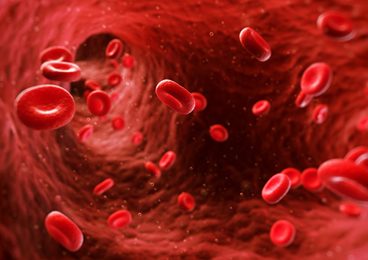
Blockage of Arteries
Symptoms
Blockage of Arteries or Atherosclerosis
Arteries and veins deliver life-saving blood to your body in a similar way as the plumbing system delivers water to different areas of your home. Arteries carry blood from the heart to the rest of the body, while veins return the blood back to the heart. Both arteries and veins ensure that life-giving oxygen and nutrients are circulating throughout the body.
However, what happens when there is buildup in our arteries, or the pipes of your home? At first, you may not notice a difference but over time, you start to notice problems.
Plaque buildup in an artery, also called atherosclerosis, causes poor circulation, especially in your lower extremities. This buildup of fats, cholesterol, and other substances in and on the artery walls does not happen overnight. It is a gradual process. As we age, the arteries can harden and narrow due to the plaque buildup. This buildup restricts the normal flow of blood throughout the body, in particular the legs. If left untreated, a blocked artery can cause severe medical complications such as pain, blood clots, stroke and even amputation.
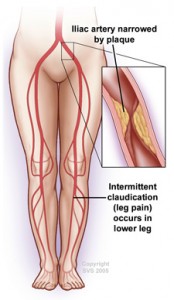
Who is at Risk?
See a vascular specialist doctor if you have any of these risk factors for atherosclerosis.
- Age – 55+
- Gender—males are more prone to the condition than females
- High blood pressure
- Diabetes
- Smoking
- High cholesterol
- Obesity
- Lack of exercise
- Family history of vascular problems
A healthy diet and exercise can help in preventing and managing blockages in your arteries. Treatment options may include medications, minimally invasive endovascular procedures to open blocked arteries or bypass surgery.
Symptoms
Atherosclerosis often has no symptoms until the buildup is severe enough to block blood flow. Here are some of the symptoms you may experience if you have a blockage in your arteries.
- Painful cramping of the muscles in the hip, thigh, or calf after activity (claudication).
- Leg numbness or weakness.
- Coldness in the lower leg or foot, compared with other parts of the body.
- A sore, poorly healing wound or ulcer on the toe, foot, or leg.
- Change in skin color or shiny skin on the legs.
- Hair loss or slower hair growth on the feet and legs.
- Slower toenail growth.
- No pulse or a weak pulse in the legs or feet.
What Tests are Needed?
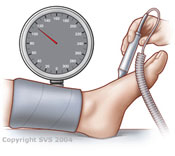
Ankle-Brachial Index (ABI)
You may be given an Ankle-Brachial Index (ABI) test to compare the blood pressure in your ankle and your arm, which are normally the same. If the blood pressure in your ankle is significantly lower, that could be a sign of narrowing leg arteries.
Doppler Ultrasound
Ultrasound may be used to determine which arteries are blocked. Often, angiography is used to find the specific location and pattern of any blockages. Angiography helps specifically identify the best way to correct aortoiliac disease. Both MRA and CTA are also helpful in outlining the extent of aortoiliac disease.
Testing can be done in the PVA Vascular Lab.
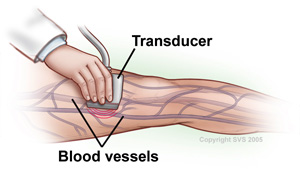
Treatments
Based on the severity of your condition, a vascular surgeon will determine the best treatment option for you. This may include lifestyle changes, medications, minimally invasive cath lab procedures such as angioplasty or stenting, which can be done in a PVA office, or open bypass surgery.
At PVA, we are blood circulation experts. Each and every day, we focus our knowledge and expertise on improving circulation in feet and throughout the body to help our patients avoid serious complications such as stroke or amputation. Vascular surgeons are the only doctors treating blood circulation problems today who can perform all treatment options available including medical management, minimally invasive procedures, and open surgical repair including bypass.
Only when you see a vascular expert who offers all treatment options, can you be assured of receiving the care that is most appropriate to improve circulation and prevent further medical complications from developing.
